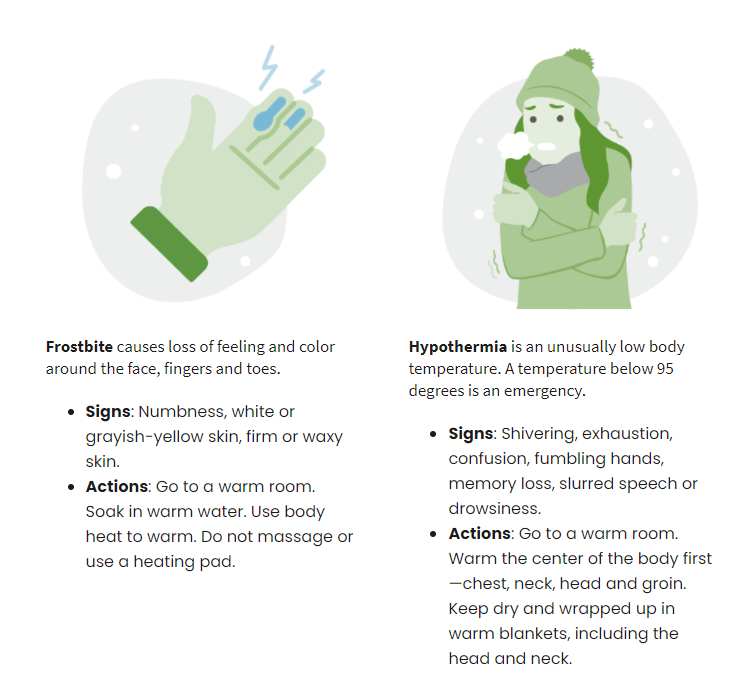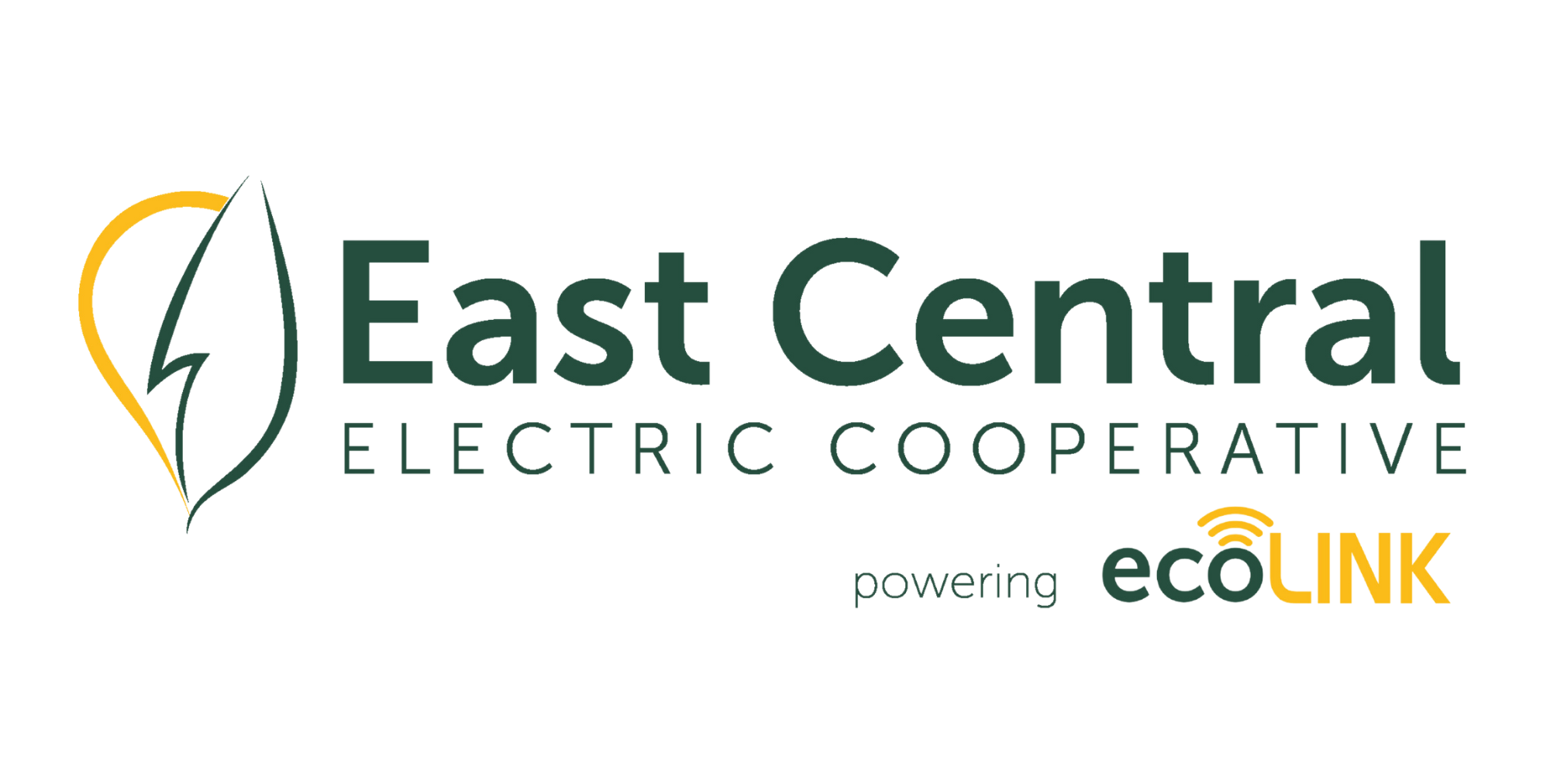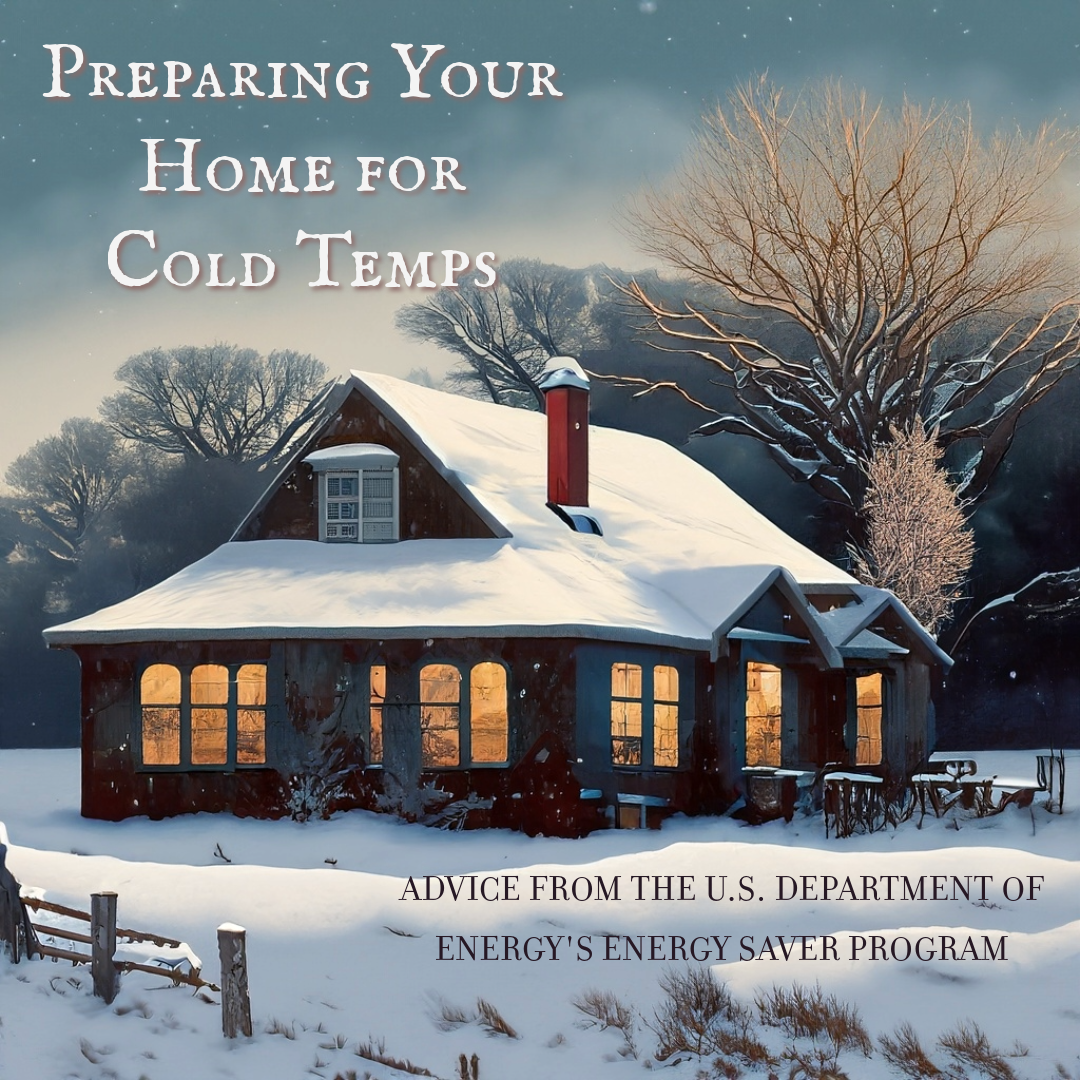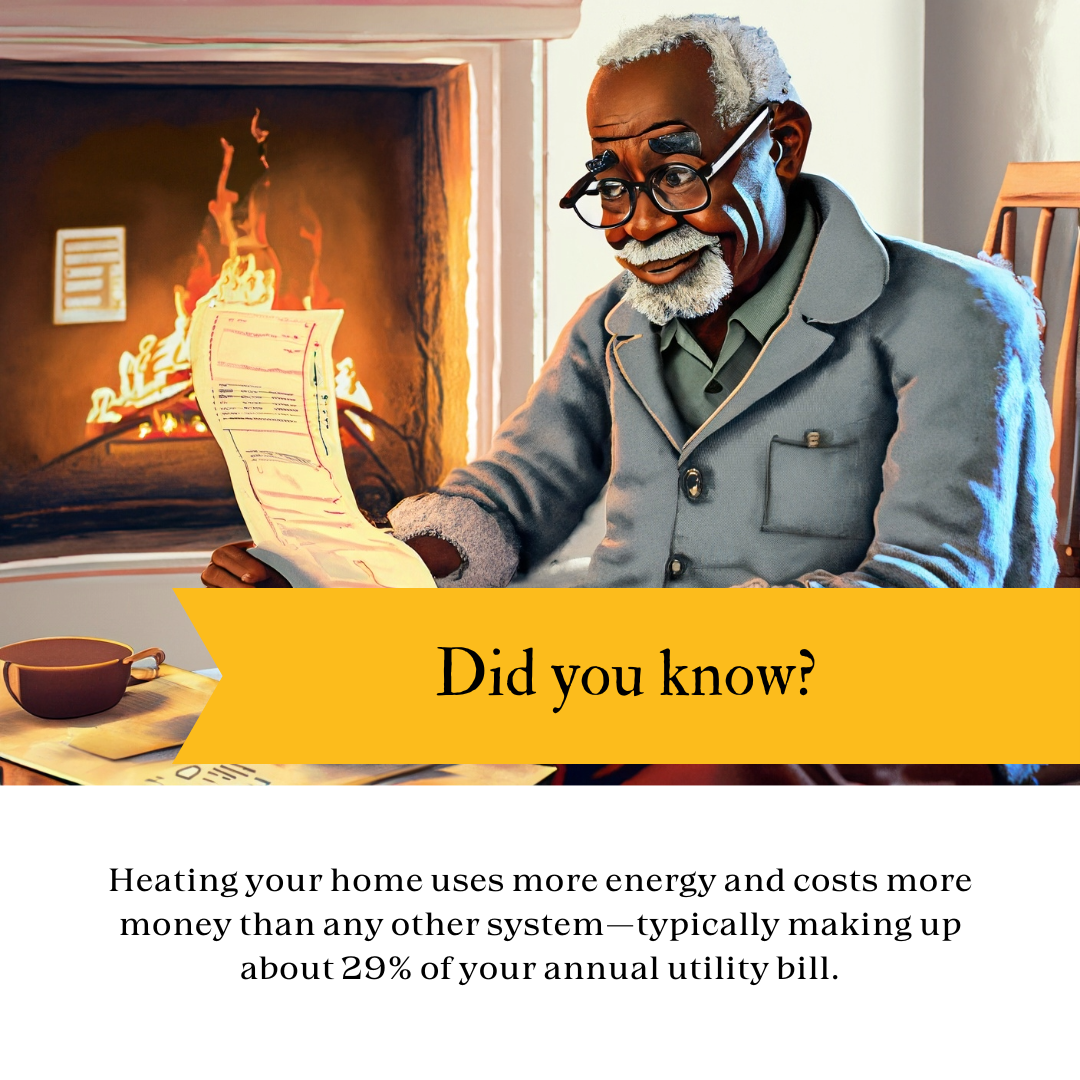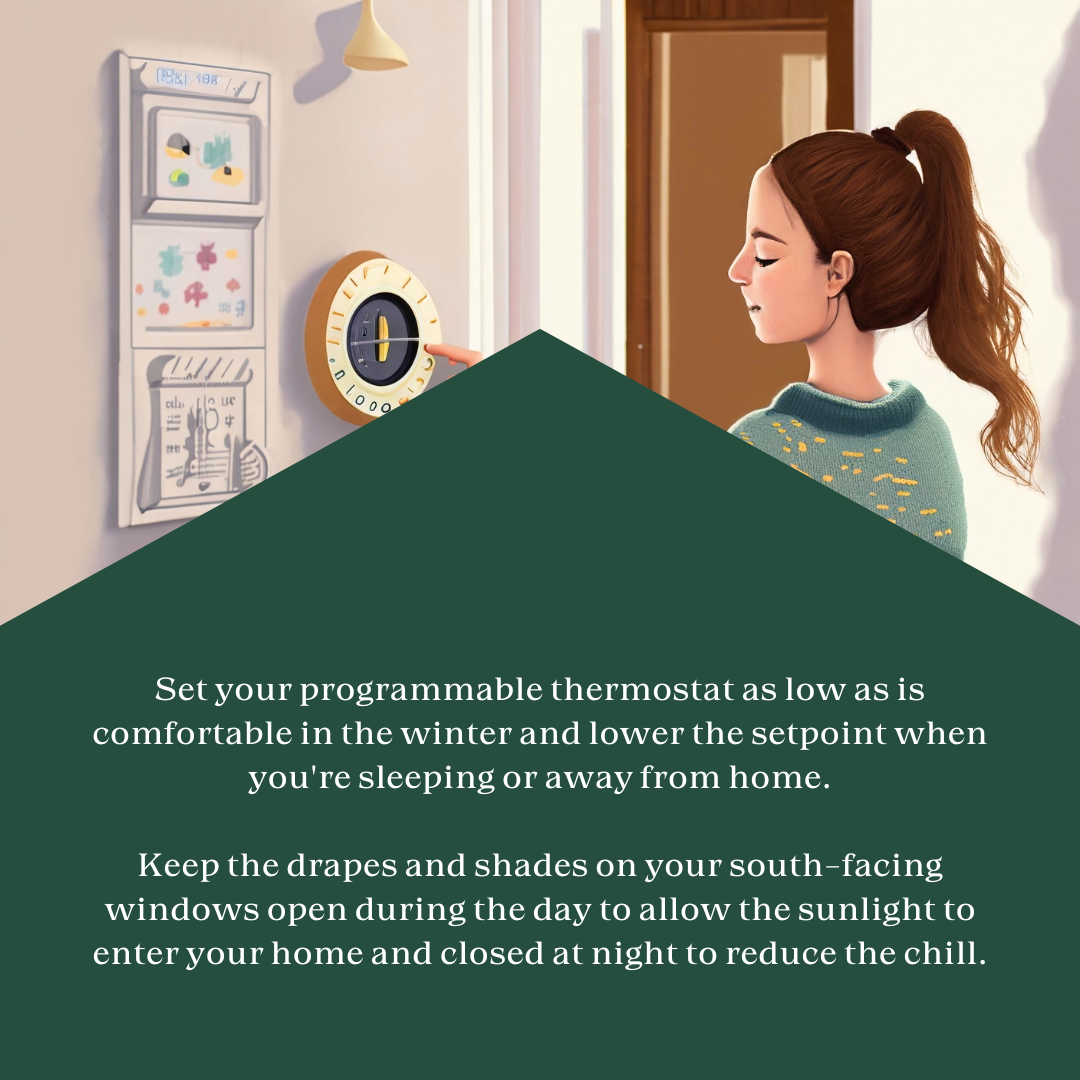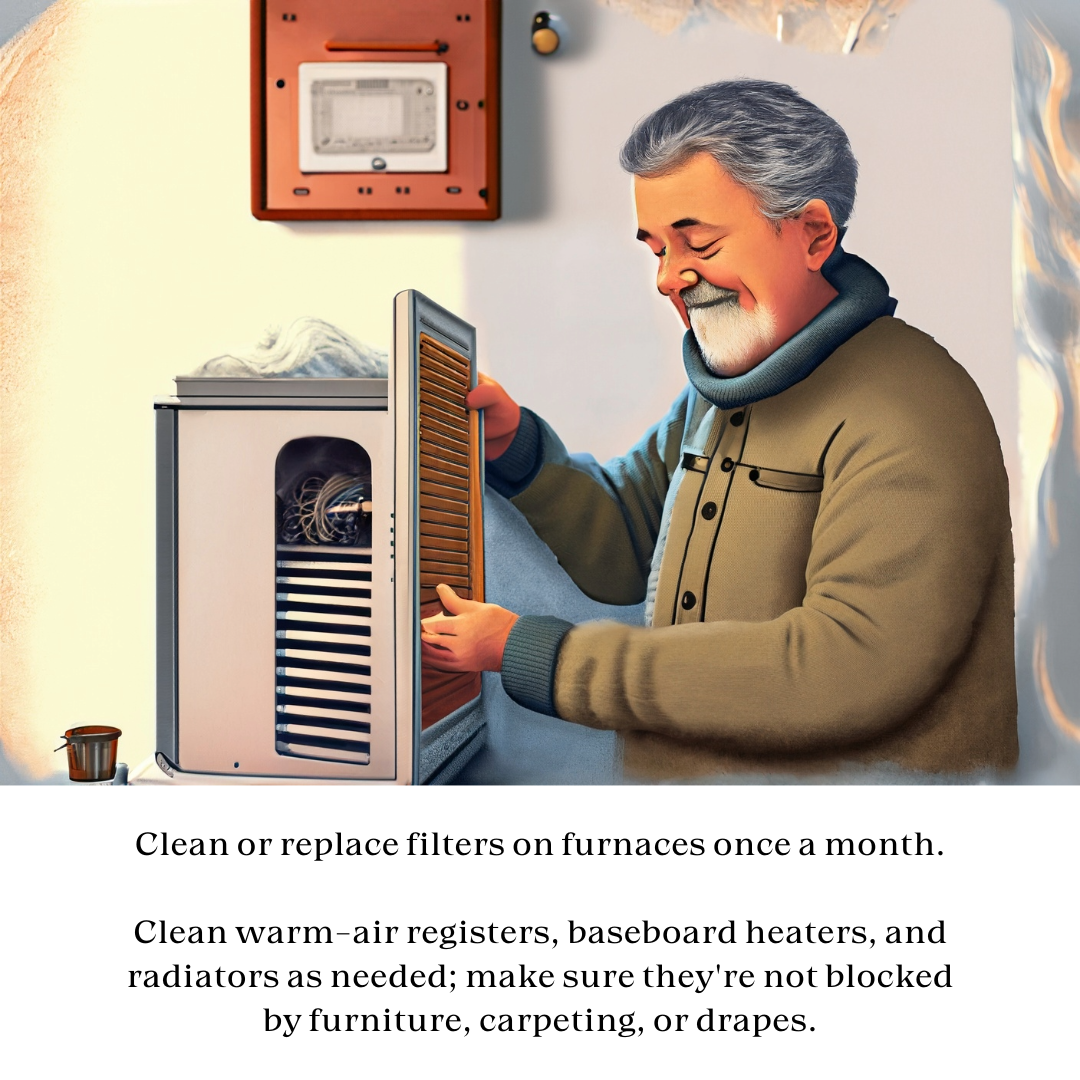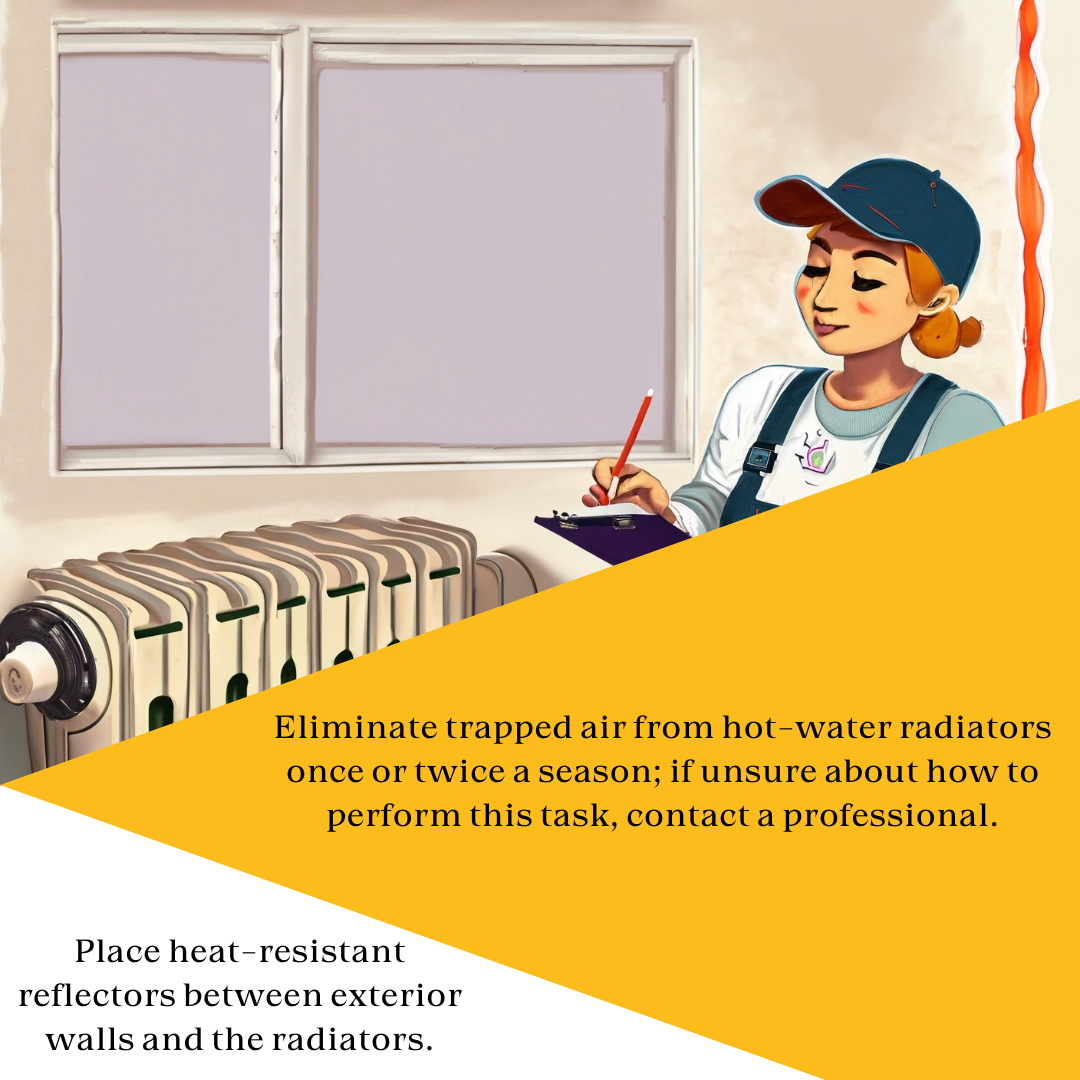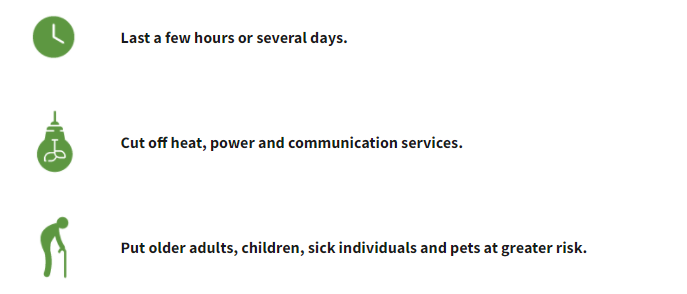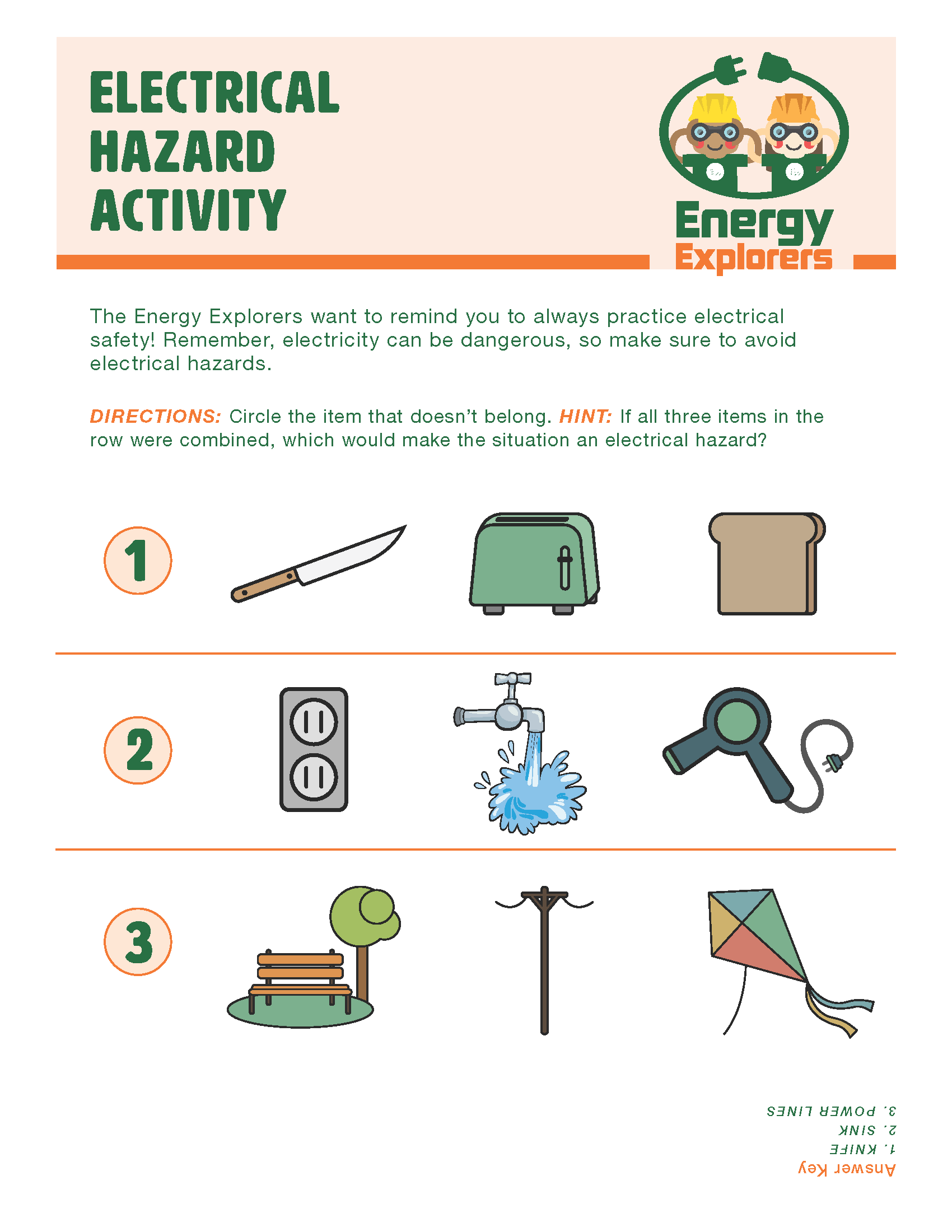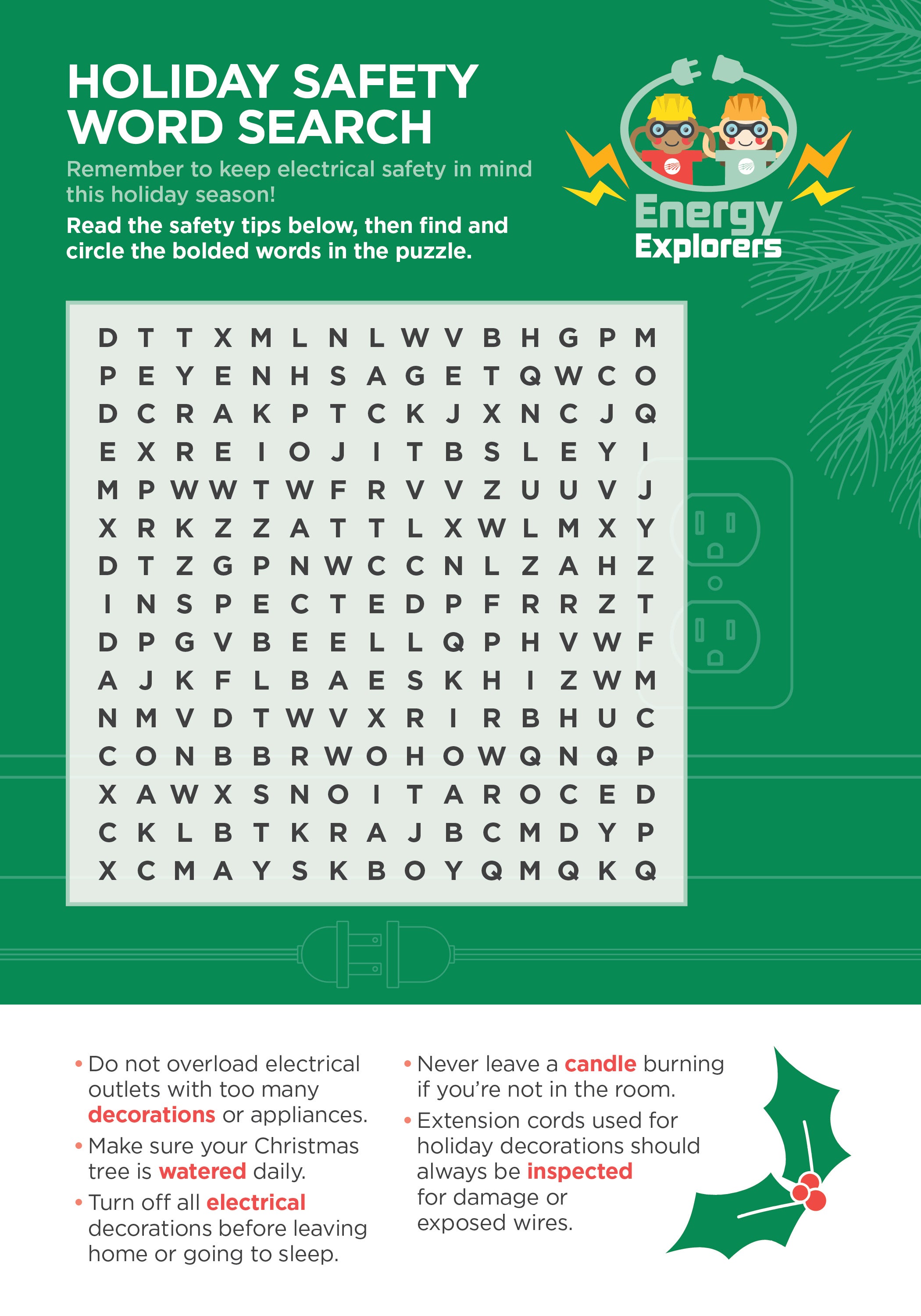Stay Warm East Central Electric Members!
Before the winter weather rolls in, we want to help you get prepared with tips and tricks to save money and stay safe. The topics covered on this page include: preparing your home for cold weather, easy energy savers, electrical fire prevention, winter weather preparedness, and children's activities. Enjoy!
Preparing your Home for Cold Temperatures
Weatherization and routine check-ups for your home heating systems can be a small price to pay now to avoid large electric bills later on. All of the following tips come from the U.S. Department of Energy's Energy Saver Program.
Heating Systems
Heating your home uses more energy than any other electrical system, making up about 29% of your utility bill.
Whether you have a wood-burning fireplace, a state-of-the-art furnace, or a series of portable space heaters, there are always benefits and drawbacks. Safety, cost, efficiency, etc. Whatever systems you have in place, it is important to take a whole-home approach. By combining proper equipment maintenance and upgrades with recommended insulation, air sealing, and thermostat settings, you can save about 30% on your energy bill while reducing environmental emissions.
When buying new heating equipment, select energy-efficient products. The store or contractor should be able to give you energy fact sheets for different types, models, and designs to help you compare energy use. Look for the blue ENERGY STAR when purchasing new products.
Weatherization
East Central Members can access rebates on home weatherization efforts by participating in our free third-party energy audit. The auditor will work with you to build a strategy to tackle air sealing, insulation, moisture control, and ventilation problems that lead to high electric bills. If you would like to speak to a Member Service Representative about East Central's Home Energy Audits and Weatherization Rebates, you can use the contact form on this page, or give us a call at 918-756-0833.
If you're more into a Do-It-Yourself style of home maintenance, the U.S. Department of Energy has helpful DIY Weatherization Guides on a variety of topics, including:
Staying Safe In Your Home and Out in the Cold
Winter Electrical Hazard Prevention
Did you know more home fires occur during winter months than in any other time of year?
Heating Systems
Heating equipment is the second leading cause of home fires in the United States. More than 65,000 home fires are attributed to heating equipment each year. These fires result in hundreds of deaths, thousands of injuries, and millions of dollars in property damage.
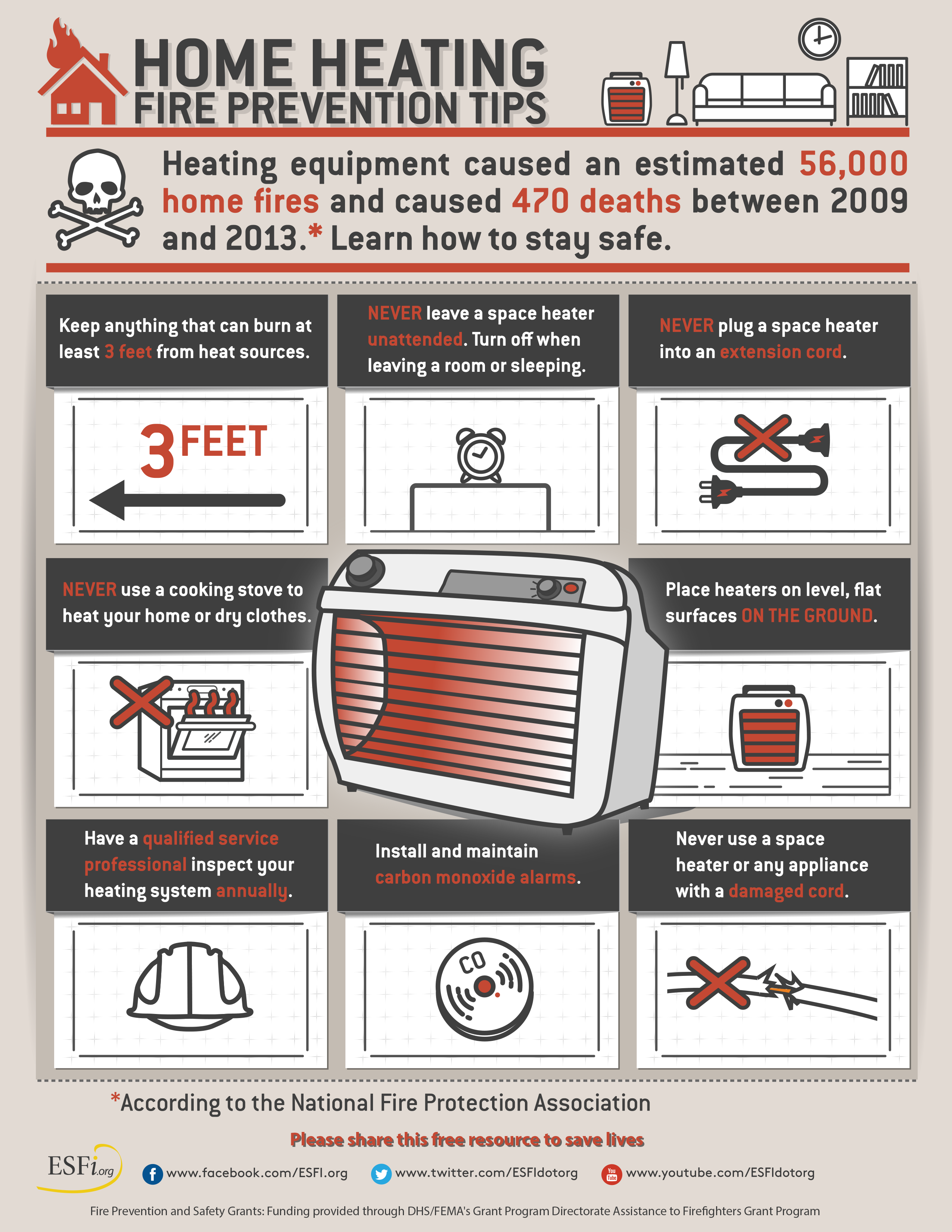
Generators
Portable generators are commonly used in the winter as a result of storm-induced power outages. The Consumer Product Safety Commission reports that 50% of all portable generator-related carbon monoxide deaths occur during the winter months (November – February). Also, winter storms can lead to serious hazards such as downed power lines and flooding.
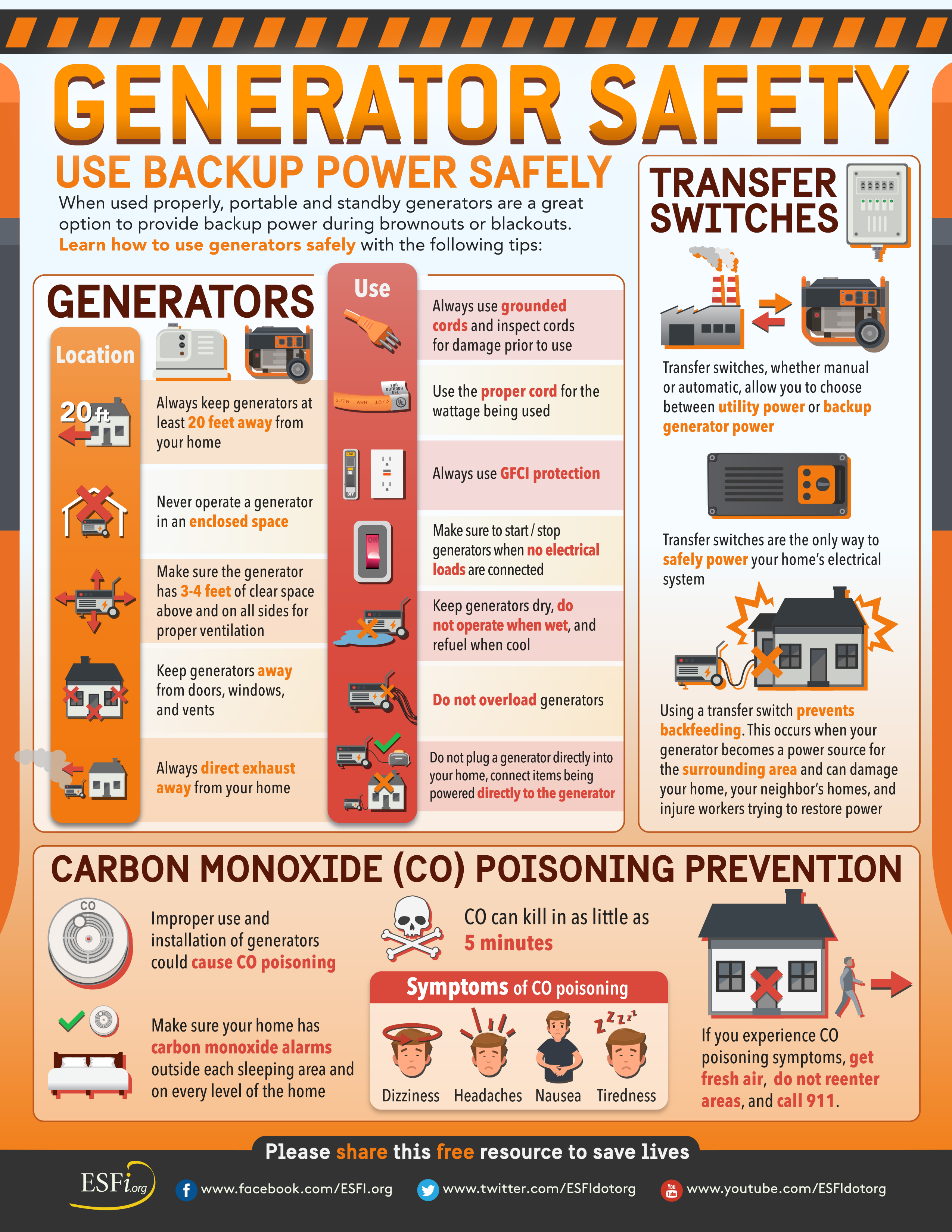
Winter Weather Preparedness
The following information comes from ready.gov/winter-weather.
Winter storms create a higher risk of car accidents, hypothermia, frostbite, carbon monoxide poisoning, and heart attacks from overexertion. Winter storms including blizzards can bring extreme cold, freezing rain, snow, ice and high winds. The following information comes from ready.gov, which is an excellent source for emergency preparedness.
A Winter Storm Can:
Know Your Risk for Winter Storms
Pay attention to weather reports and warnings of freezing weather and winter storms. Listen for emergency information and alerts. Sign up for your community’s warning system. The Emergency Alert System (EAS) and National Oceanic and Atmospheric Administration (NOAA) Weather Radio also provide emergency alerts.
Know Your Winter Weather Terms
-
- Winter Storm Warning - Issued when hazardous winter weather in the form of heavy snow, heavy freezing rain, or heavy sleet is imminent or occurring. Winter Storm Warnings are usually issued 12 to 24 hours before the event is expected to begin.
-
Winter Storm Watch - Alerts the public to the possibility of a blizzard, heavy snow, heavy freezing rain, or heavy sleet. Winter Storm Watches are usually issued 12 to 48 hours before the beginning of a Winter Storm.
-
Winter Weather Advisory - Issued for accumulations of snow, freezing rain, freezing drizzle, and sleet which will cause significant inconveniences and, if caution is not exercised, could lead to life-threatening situations.
Learn About Frostbite and Hypothermia
